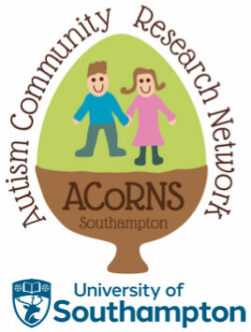
We want to extend a very warm welcome to Dr Anne Collis who has joined ACoRNS as a Visiting Research Fellow.
Anne’s interest in research is its potential to change how people make sense of themselves and the world around them. Until recently she located herself firmly in the world of social activism, valuing the power of research but largely choosing to remain outside academia. Her voluntary and work life social activism has straddled international development, cross-cultural communication, the looked after system, education, social care, health, homelessness and the rights of people with learning disabilities and/or who are neurodivergent.
In 2013, Anne was a co-founder of Barod Community Interest Company, a cooperative working in the knowledge sector that was co-founded and co-run by people with and without learning disabilities. It was Barod that finally persuaded Anne to enter the academic world to study for a doctorate, arguing that in the current world they needed a Dr Collis to open doors that Mrs Collis could not open. Her doctorate was a partnership of Bangor University and Barod. It was funded under the KESS (Knowledge Economy Skills Scholarship) scheme. She successfully defended her thesis in July 2021.
Anne’s doctoral thesis, Not Just the Usual Suspects, combines transdisciplinary methodological and epistemic research with a very practical purpose: Barod could not find an approach to public involvement in policy, services or research that sat comfortably with them. So Anne was sent away to do doctoral research to create one. Naively she thought this would mean designing a method. In reality, most of the research involved trying to understand the problem well enough to try to co-design a solution. This led to in depth research about knowledge, knowing, power, cross-cultural communication, mental models and what we mean when we talk about living in different worlds.
The end product was a new approach to thinking about public involvement as well as a practical new method called ‘CSC’ (coffee shop conversations) which is described in the later parts of her thesis. As part of Anne’s commitment to valuing different people’s ways of knowing and knowledge, her thesis is written ‘bilingually’. The left pages provide an ‘everyday’ langage summary while the facing page is written in ‘academic’.
Currently, Anne is writing up some of her research while developing an 11 year plan for a centre for neurodivergent entrepreneurship and providing practical support to several autistic and neurodivergent people.
Anne identifies as neurodivergent and autistic. Towards the end of the doctorate, Anne was advised to self-refer for a formal autism diagnosis. She did so, mainly to experience and observe the diagnostic system from the inside. After a paper-based screening, she was accepted on the waiting list in February 2020. She is still on the waiting list.
We very much look forward to working with Anne, particularly on the experiences of neurodivergent students in Higher Education. Anne can be contacted via email: A.Collis@soton.ac.uk and Twitter @welshflier.
